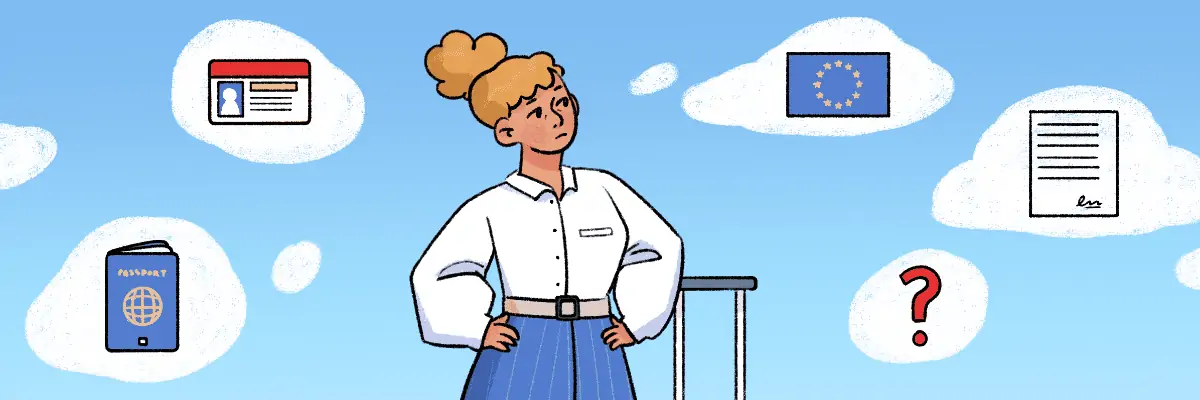With the conclusion of Brexit and the related trade agreements, many EU contractors are unsure of how they can continue working for UK clients. The trade agreements between the EU and the UK focused on ‘goods’ and did not offer a lot of clarity about how cross-border services could be maintained.
Although the situation is less than ideal for EU contractors wishing to work in the UK, there are a few new guidelines and options. This would typically depend on your history of working in the country. This guide will explore some of the new rules, primarily regarding immigration requirements. It will also cover some exceptions to the need for a work visa.
How does Brexit affect EU contractors working in the UK?
The primary thing to know is that as of the beginning of 2021, EU contractors are on an equal footing with other non-UK citizens when it comes to having a right to work. This means that unless you meet one of the exceptions, you will need to obtain a work visa to serve UK clients inside the country.
Rules for EU citizens working in the UK before January 1, 2021
There is an exception to the work visa rules in the UK. Contractors that were living and working in the UK prior to January 1, 2021, can apply for settled or pre-settled status under the new ‘EU Settlement Scheme’ (although you will actually be settling in the UK). The deadline for applying is June 30, 2021.
A pre-settled status simply requires that you were working or residing in the UK for any period of time prior to the cut-off date, and you will need proof of residency. Settled status is granted if you have lived in the UK for 6 months in any 12-month period for five years in a row. You can apply to upgrade from pre-settled status to settled, once you qualify.
Rules for EU citizens working in the UK after January 1, 2021
If you were not working in the UK before the cut-off date, then you will have to apply for a skilled worker visa. This is under the points-based immigration scheme. You must also have a job offer from a valid sponsor in the UK. Typically, a job offer must come from an employer with a sponsor license, which may undermine your ability to work as an independent contractor.
How to get a sponsored work visa to work in the UK
If you do find a client who wants to contract with you, then they would be the one to sponsor your work visa. However, they may have to apply to hire you as an employee rather than a contractor. This is because of the strict immigration rules on skilled workers, and the IR35 law. This law classifies workers as employees or contractors based on criteria of control, direction, and management.
Misclassification risk and the IR35 law
The IR35 law places an additional burden on companies that want to hire contractors instead of employees, given the lower cost and tax levy. Even if you have a ‘right to work’ visa-free in the UK, your contracting relationship could be under scrutiny as potential ‘disguised employment. For example, if the UK company has an employee that fills a role similar to the contractor’s, that would be a red flag for misclassification.
Can I use an umbrella company in the UK?
If you are working under the settlement scheme as a contractor, you can always use an umbrella company as an intermediary between you and your client. This simplifies the contracting and payment process, as well as taxes and social contributions.
However, if you are an EU contractor that needs a work visa, it is unlikely the umbrella company could obtain a sponsor license under the UK’s strict approach to ‘secondment’ hiring arrangements.
Are there changes to taxes and social security in the UK?
Valid contractors in the UK will still pay normal UK tax rates on earnings. They could potentially become tax residents if they stay long enough. Social security may be affected, but there are still cross-border agreements under Brexit allowing EU citizens to retain some of their home country benefits if they wish.
A new option: Work remotely from your home country
Depending on the nature of your work and skills, there is growing acceptance of hiring international remote workers for either short projects or long-term roles. There is no need to immigrate to the UK if your role can be performed remotely. With many companies choosing to go partially or fully remote, this is a practical solution emerging from the global pandemic.
In that case, the UK company can hire and pay you directly as a foreign freelancer or through your own limited company, with no other compliance or immigration concerns. You can also work through an umbrella company in your own country to facilitate the contract and payments from your client.
How to stay compliant as an EU citizen working in the UK
The most obvious new compliance concern for EU contractors is the need for a work visa. This may be tempting to enter the country on a temporary tourist or business visa to avoid the new rules. With those visas, however, you are not permitted to work directly for a UK company. If caught, you could face penalties or become blacklisted from returning in the future.
The other compliance issues are payment of taxes and making social contributions on your UK earnings. If that is a complicated task for you, it might be useful to use an umbrella company to assist. The umbrella company is accustomed to making the calculations and withholding on your behalf. They can also advise on any developments on working in the UK after Brexit.
Contractor Taxation has verified umbrella companies in the UK (and throughout the EU for remote workers). These umbrella companies are ready to assist EU contractors with navigating all UK labour and tax laws. This includes avoiding misclassification issues. Please contact us with your questions about post-Brexit contracting for UK companies.





